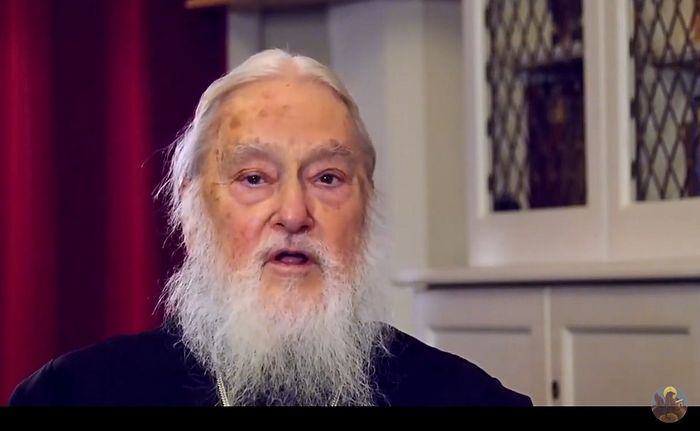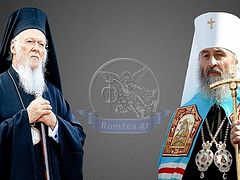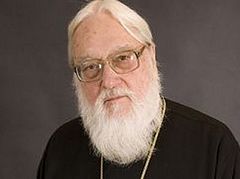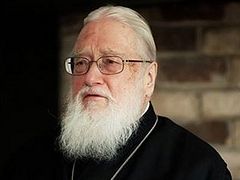London, December 13, 2018
An interview with His Eminence Metropolitan Kallistos (Ware) was posted yesterday on the site “Slovo Bogoslova” (“Theologian’s Word”), a project of the Institute of Theology and Philosophy based in St. Petersburg, Russia, in which, among other topics, the renowned hierarch shares his thoughts on the current Ukraine crisis.
The interview is provided in both video and text formats. The video is overdubbed in Russian, though Met. Kallistos’ English-language answers can be easily heard:
Having discussed the Eucharist as the main principle of unity in the Orthodox Church, as compared to the Catholic and Protestant churches, the topic of Ukraine is then broached. Asked what he thinks about the situation in Ukraine, Met. Kallistos first notes that it is “extremely serious,” that he is greatly distressed by it, and that he does not see what the solution is going to be.
He goes on to express disagreement with the Patriarchate of Constantinople, of which he is a member:
Though I am a metropolitan of the Ecumenical Patriarchate, I am not at all happy about the position taken by Patriarch Bartholomew. With all due respect to my Patriarch, I am bound to say that I agree with the view expressed by the Patriarchate of Moscow that Ukraine belongs to the Russian Church. After all, the Metropolia of Kiev by an agreement of 1676 [1686—OC] was transferred from the omophorion of the Ecumenical Patriarchate to that of the Patriarchate of Moscow. So, for 330 years Ukraine has been part of the Russian Church.
And, as have many other hierarchs, primates, and Synods, Met. Kallistos then objects to the unilateral character of such actions—here specifically the abolishing of the 1686 documents, and adds: “This is a fact of history that Ukraine has belonged to the Russian Church.”
He also notes that giving autocephaly to Philaret Denisenko and Makary Maletich, the leaders of the “Kiev Patriarchate” and the “Ukrainian Autocephalous Orthodox Church” respectively, whom Met. Kallistos calls “schismatic bishops,” is a mistake.
And again, in harmony with so many other voices from around the Orthodox world, Met. Kallistos suggests that the proper course of action is to call a pan-Orthodox meeting of the primates—not just of Constantinople and Moscow, he specifies—and perhaps even an extension of the 2016 Council of Crete.
However, Met. Kallistos also cannot agree with the Russian Church’s response to Constantinople’s actions:
At the same time, I am troubled by the actions of the Patriarch of Moscow, Patriarch Kirill and the Russian Church. I am disturbed that they have broken off communion with Constantinople. I believe this discussion of the position in Ukraine needs to be considered in the spirit of brotherly love without any breaking of communion. So, in that way I cannot agree entirely with either side. And I do pray that somehow there may be a reconciliation.
In this, Met. Kallistos is in harmony with His Beatitude Archbishop Anastasios of the Albanian Church who also expressed his deep misgivings at Constantinople’s actions but also his displeasure with the Russian Church’s response.
He also notes that he does not have any insider information about why Pat. Bartholomew has chosen now to intervene in Ukraine, though he does note that the Russian Church’s decision not to participate in the Crete Council must have been a great disappointment to Pat. Bartholomew.
His Eminence also discusses his ties to the Russian Church and his views on Church-state relations there in the past and today, and also speaks about his personal life.
Follow us on Facebook!




